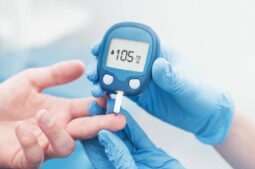
World Ovarian Cancer Day is the 8th of May. In 2013, a group of ovarian cancer advocacy organizations around the world came together to establish the day with a focus of raising awareness and solidarity in the continuing fight. Raising awareness is vital. Currently, around 300,00 women worldwide are diagnosed every year and overall survival rates fall below those of other cancers, largely as a result of delays in diagnosis, with symptoms often mistaken for other less serious illnesses.
In our own small contribution to raising awareness, this IVI blog article looks at ovarian cancer: what it is, what its symptoms are, and why early detection is so vital. Finally, we look at which actions you might take if you fear that an ovarian cancer diagnosis may lead to infertility.
What is ovarian cancer?
Ovarian cancer arises from the cells in and around the ovaries and fallopian tubes. It occurs when normal ovarian cell growth develops abnormalities: the growth of new cells develops unnecessarily and at the same time old and damaged cells do not die away as they normally would. This leads to a growth, or tumour, resulting from the build-up.
The characteristic that makes ovarian cancer so dangerous is that detection and diagnosis are often late, which in turn makes the cancer more difficult to treat. Not only is there no standard test that would make early detection possible, but often the symptoms are ignored because they are mistaken for some other more minor problem. There are three main types of ovarian cancer:
- Epithelial ovarian cancer is the most common. It originates on the surface of the ovary (the epithelium). Other types of cancer are included in this group, such as cancer of the fallopian tubes and primary peritoneal cancer.
- Germ cell ovarian cancer, originating in the reproductive cells inside the ovaries, is more rare. It can affect women of all ages, but most commonly women under the age of 20.
- Stromal cell ovarian cancer develops in the structural connective tissue of the ovaries. This is also rare, representing only around 1% of ovarian cancers and occurring most often in women over 50.
What are the symptoms of ovarian cancer?
Common symptoms of ovarian cancer can be experienced by women who do not have cancer as well as those who do, which is what makes early detection so notoriously difficult. These include:
The importance of early diagnosis and treatment
There are some tests that can point towards the possibility of the condition including a pelvic examination, a pelvic or transvaginal ultrasound scan or a blood test. Sometimes a CT scan or PET scan may also form part of the diagnostic process, but the only way for a definitive diagnosis is through a biopsy.
If ovarian cancer is identified at an early stage, when it is limited to the ovary or fallopian tube, the prospects for successful treatment are very good, with a five-year survival rate of 92%. However, due to the prevalence of late diagnosis, the overall five-year survival prospects are not so promising, at 47.4%.
Treatment is usually with chemotherapy and/or surgery to remove the tumours, with the order of treatments being decided by a gynaecological oncologist. Surgery may be undertaken both for the purposes of staging, to investigate the extent of the disease, and debulking, which is the removal of tumours.
If ovarian cancer causes infertility, what then?
Whether infertility results from treatment will of course depend on the type of treatment and in the case of surgery, its extent. After any type of treatment, it’s vital for any woman to get the go ahead from her doctor to try for pregnancy with fertility treatment. Once given the go ahead, there are different options depending on the individual patient.
Fertility preservation
- In vitro maturation of oocytes is also useful where there is no time for stimulation of the ovaries. In this technique, immature oocytes are recovered from small follicles with no or minimal stimulation. These are then cultivated to maturity in a suitable medium in the laboratory.
Egg donation
For women who have completely lost ovarian function as a result of chemotherapy or surgery to treat ovarian cancer, there is still the opportunity to gestate their baby from an embryo using donor eggs and their partner’s or donor sperm. If you’d like to know more about this, why not start by watching the video about our egg donation programme?
Getting in touch with IVI
We hope we’ve done our bit to raise awareness of ovarian cancer and encourage you to seek medical advice if you notice any symptoms. But you should also feel reassured that, devastating as an ovarian cancer diagnosis may be, it does not necessarily lead to infertility, and in many cases help is available. We continue the fight.





Comments are closed here.